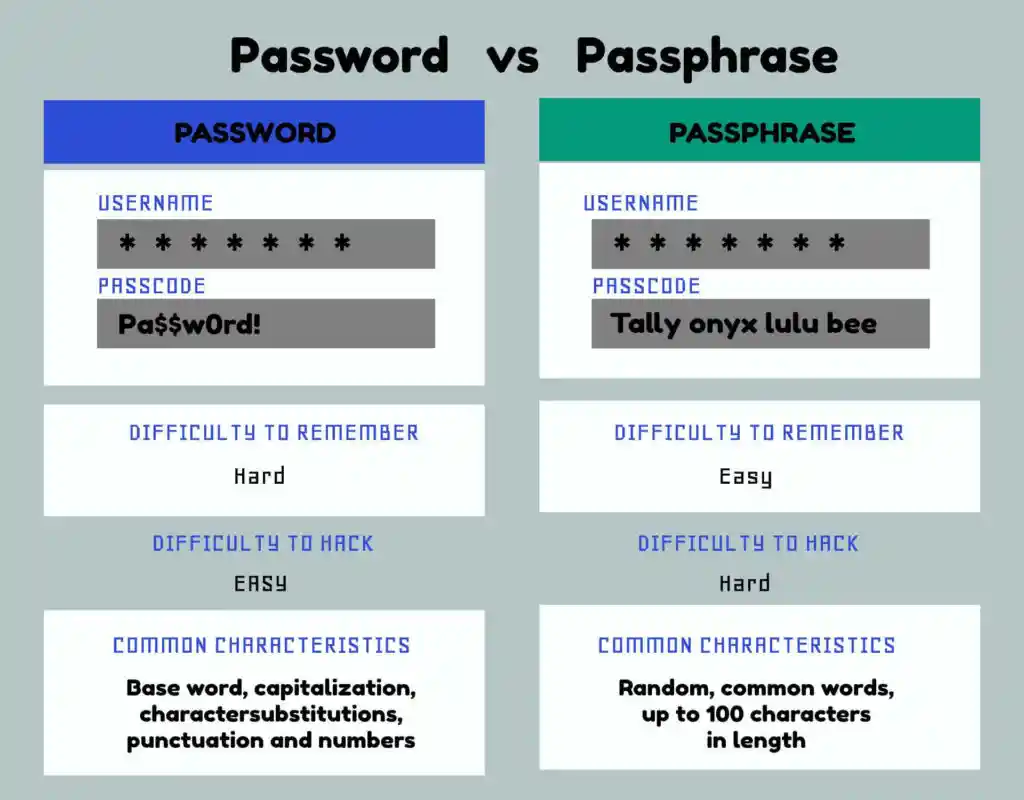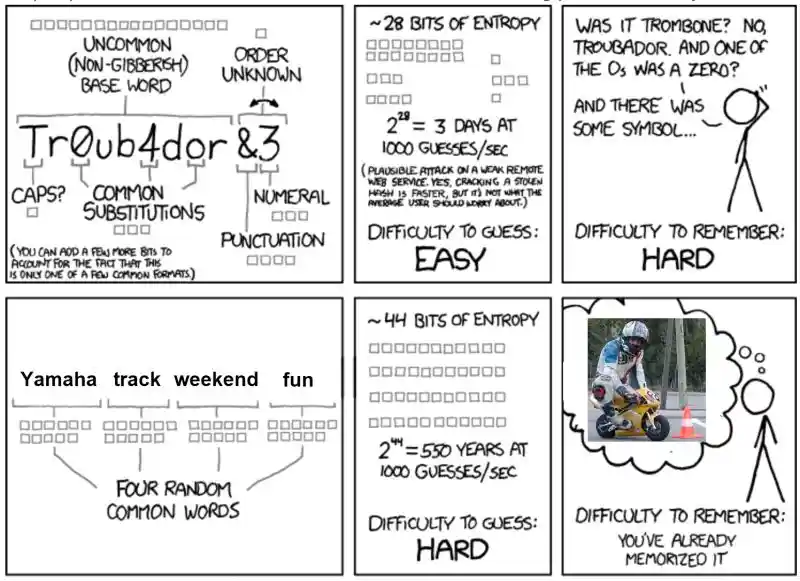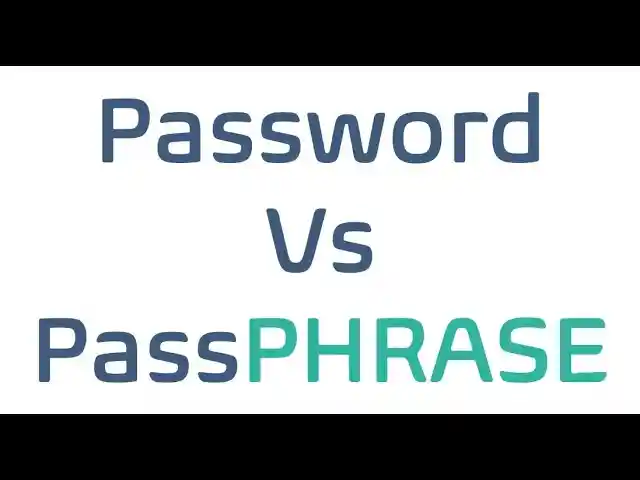Table of Content
When fortifying your system or online accounts, establishing a robust password stands as a critical measure. Yet, the question arises: which holds greater strength — passwords comprising seemingly random characters or passphrases constructed from multiple unrelated words?
This article delves into the comparison to guide your choice effectively. Initially, let’s define what constitutes a passphrase.
Understanding the Concept of Passphrases
When gaining access to an online account or file, individuals typically employ either a password or a passphrase.

Unlike passwords, which are typically shorter sequences of characters, passphrases consist of four or more words, each with at least four letters.
“ While spaces between words are optional, passphrases generally surpass passwords in length, often reaching 20 characters or more, thereby significantly enhancing password entropy – a measure of a password’s strength.”
Passphrases, despite being longer, are easier to remember than complex passwords. They boost security with minimal effort, acting like a memorable phrase instead of a complex jumble of characters.
The Memory Problem
Regular passwords are easy to remember but easy to crack. Adding complexity (numbers, symbols) increases security but sacrifices memorability. Passphrases offer a middle ground: easier to remember than complex passwords but still more secure than simple ones.
The delicate balance between security and recall was succinctly captured by cartoonist Randall Munroe, renowned for his popular webcomic series, XKCD, which delves into various scientific and tech-related topics.

While the preference for passphrases over passwords appears evident, this assertion hinges significantly on human memory. Let’s explore this further by removing memory as a factor.
Incorporating Randomness: Enhancing Security and Unpredictability
While passphrases offer a security upgrade over traditional passwords due to their length and complexity, their effectiveness hinges on one crucial factor: human memory. This is where password managers come in. These handy tools not only store and autofill complex passwords across various websites, but also generate and remember them for you, eliminating the burden of remembering intricate combinations for each account.
Using a password manager with a strong master password (ideally exceeding 15 characters) ensures robust security against brute-force attacks. With these tools, the debate between passwords and passphrases becomes less relevant, as the manager handles the complexity while you potentially use a memorable passphrase for the manager itself, like “mountain river forest sunrise.”
Here’s where HideMyID enters the scene. This new password manager boasts an user-friendly interface and top-notch encryption protocols, guaranteeing the safety of your sensitive information. Say goodbye to password struggles and experience peace of mind in today’s digital world. HideMyID offers a seamless experience with cutting-edge technology, making it a valuable choice for individuals and businesses seeking to safeguard their digital identities.
Choosing Between Passphrases and Passwords: What’s Best for You?

To recap our discussion: When comparing the security of a passphrase versus a randomly generated password, the latter emerges as the superior option. However, human memory limitations pose a challenge in remembering such complex passwords, necessitating the use of a password manager such as Google Password Manager, but is it Safe to use? Head out to this article to gain insights on Google Password Manager.
Password manager can then be safeguarded with a more easily recallable passphrase. With these considerations in mind, we will be crafting HideMyID Password Manager, prioritizing security, privacy, and user-friendliness. Leveraging end-to-end encryption, HideMyID Password Manager ensures data safety, reinforced by Swiss privacy laws. Notably, HideMyID’s overarching mission is to prioritize privacy by default across all user data, including logins and personal email addresses, which constitute vital components of digital identity. To further enhance privacy, HideMyID provides Email aliases as well.





